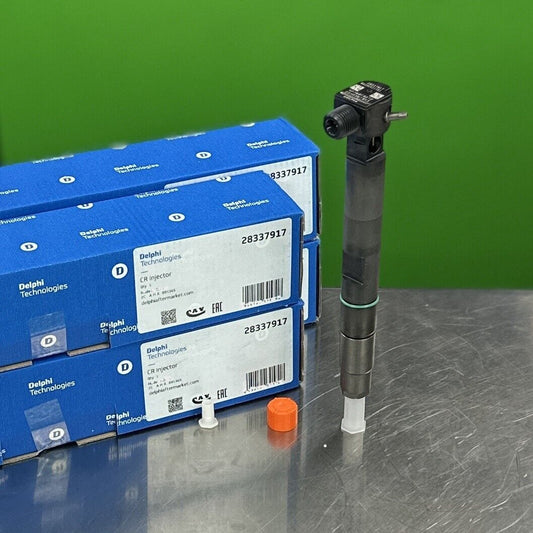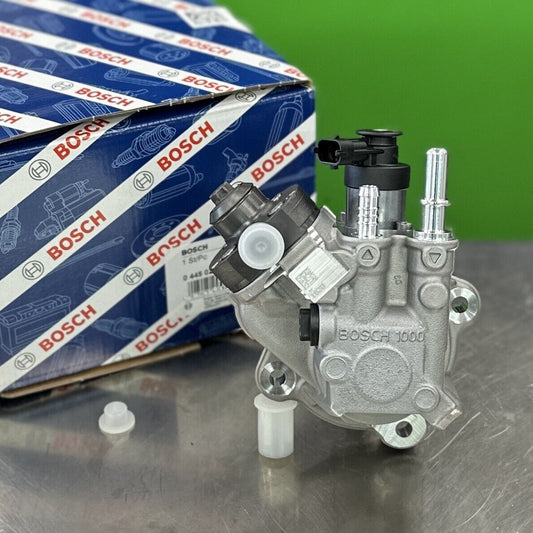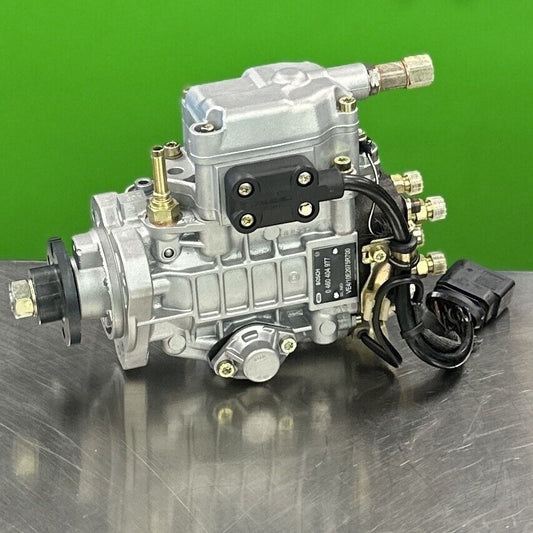How to Diagnose Common Diesel Fuel System Problems in Oregon
When it comes to diagnosing common diesel fuel system problems in Oregon, it's essential to be aware of the various issues that can arise and how to effectively troubleshoot them. From low fuel pressure to black smoke emissions and engine misfires, understanding the root causes of these problems is crucial for maintaining optimal performance and efficiency.
Low fuel pressure is a common issue that can lead to engine stalling and poor performance. This problem is often attributed to a clogged fuel filter, a failing fuel pump, or issues with the fuel pressure regulator. Identifying the specific cause of low fuel pressure is key to resolving the issue and ensuring smooth operation of the diesel fuel system.
Black smoke emissions are another indicator of potential problems within the fuel system. The presence of black smoke suggests incomplete combustion, which can be caused by a variety of factors such as a dirty air filter, faulty injectors, or an incorrect fuel-to-air ratio. Addressing these issues promptly is essential to prevent further damage and maintain the efficiency of the engine.
Engine misfires can be a frustrating problem that stems from issues with the fuel injectors, glow plugs, or the combustion process itself. Diagnosing the specific cause of engine misfires requires careful inspection and testing to pinpoint the underlying issue accurately. By addressing these problems proactively, you can prevent more severe damage to the diesel fuel system.
Water contamination is a serious concern that can result in corrosion and damage to engine components. Symptoms of water contamination include rough idling, loss of power, and potential failures of fuel system components. Detecting and resolving water contamination issues promptly is essential to prevent costly repairs and ensure the longevity of the diesel fuel system.
Excessive fuel consumption is often indicative of underlying issues such as fuel leaks, injector problems, or issues with the engine's air intake system. Identifying the root cause of excessive fuel consumption is crucial for improving fuel efficiency and reducing operational costs. By addressing these issues promptly, you can optimize the performance of the diesel fuel system.
Hard starting is a common problem that can be attributed to issues like a weak battery, faulty glow plugs, or air in the fuel system. Proper diagnosis of the starting problem is essential for implementing effective solutions and ensuring reliable engine operation. By addressing these issues promptly, you can avoid potential breakdowns and maintain the overall health of the diesel fuel system.
Low Fuel Pressure
Low fuel pressure is a common issue in diesel fuel systems that can significantly impact the performance of the engine. When the fuel pressure is insufficient, the engine may experience stalling and a decrease in power output. One of the primary causes of low fuel pressure is a clogged fuel filter, which restricts the flow of fuel to the engine. Additionally, a failing fuel pump can also lead to decreased pressure in the fuel system, affecting the engine's operation.
Another potential culprit for low fuel pressure is a malfunctioning fuel pressure regulator. This component is responsible for maintaining the optimal pressure levels in the fuel system, and if it fails, it can result in inadequate fuel delivery to the engine. Identifying the root cause of low fuel pressure is essential for effective troubleshooting and resolving the issue promptly to prevent further damage to the diesel fuel system.
Black Smoke Emissions
When it comes to black smoke emissions from a diesel engine, it's essential to address the issue promptly to prevent further damage and ensure optimal performance. Black smoke is a clear indication of incomplete combustion, which can have various underlying causes that need to be identified and resolved.
One common reason for black smoke emissions is a dirty air filter, which can restrict airflow and lead to an improper fuel-to-air ratio. This imbalance results in inefficient combustion, producing the telltale black smoke from the exhaust. Regularly checking and replacing the air filter can help prevent this issue.
Faulty injectors are another potential culprit behind black smoke emissions. When injectors are not functioning correctly, they may spray too much fuel into the combustion chamber, again disrupting the proper fuel-to-air ratio. This excess fuel can result in black smoke being expelled from the exhaust system.
Additionally, an incorrect fuel-to-air ratio, often caused by a malfunctioning sensor or fuel system component, can lead to incomplete combustion and black smoke emissions. Ensuring that the fuel system is properly calibrated and all components are in good working condition is crucial for preventing this issue.
Diagnosing the exact cause of black smoke emissions requires a systematic approach, including inspecting the air filter, fuel injectors, sensors, and other relevant components. By identifying and addressing the root cause of the problem, you can effectively reduce black smoke emissions and improve the overall performance of your diesel engine.
Engine Misfires
When it comes to engine misfires in diesel fuel systems, the repercussions can be quite significant. These misfires are often attributed to issues with critical components such as the fuel injectors, glow plugs, or even problems within the combustion process itself. Imagine your engine as a symphony orchestra where each part plays a crucial role in creating a harmonious performance. If one instrument is out of tune or missing a beat, the entire piece falls apart.
Diagnosing engine misfires requires a keen eye and a methodical approach. Just like a detective solving a mystery, a meticulous examination of the fuel injectors, glow plugs, and combustion system is necessary to pinpoint the exact cause of the misfire. It's like unraveling a complex puzzle where each piece holds the key to restoring the engine's smooth operation.
Ignoring engine misfires can lead to a domino effect of issues, affecting not only performance but also fuel efficiency and overall engine health. Picture it as a small crack in a dam that, if left unchecked, could result in a catastrophic flood. Addressing misfires promptly is crucial to prevent further damage and ensure the longevity of your diesel fuel system.
Water Contamination
Water contamination in the fuel system is a serious issue that can have detrimental effects on your diesel engine. When water enters the fuel system, it can lead to corrosion, engine damage, and decreased performance. Symptoms of water contamination include rough idling, loss of power, and potential fuel system component failures. If left untreated, water in the fuel system can cause irreversible damage, resulting in costly repairs.
Diagnosing water contamination requires thorough inspection and testing of the fuel system components. One common method is to use a water detection kit to check for the presence of water in the fuel. Additionally, draining the fuel tank and inspecting for any water accumulation is essential in identifying and addressing the issue.
Preventative measures can help mitigate the risk of water contamination in your diesel fuel system. Using fuel additives that contain water dispersants can help prevent water from accumulating in the fuel tank. Regularly draining any water separators in the fuel system can also help remove any water before it causes damage.
In cases of severe water contamination, professional assistance may be required to thoroughly clean the fuel system and address any resulting damage. Ignoring water contamination can lead to costly repairs and potential engine failure, emphasizing the importance of proactive maintenance and early detection.
Excessive Fuel Consumption
Excessive fuel consumption in a diesel engine can be a frustrating issue, impacting both your wallet and the environment. When your vehicle is guzzling fuel at a higher rate than usual, it's essential to pinpoint the underlying causes to address them effectively. One common culprit of excessive fuel consumption is fuel leaks. These leaks can occur in various parts of the fuel system, such as the fuel lines or injectors, leading to wastage of precious diesel. Identifying and fixing these leaks promptly can significantly improve fuel efficiency.
Another potential cause of excessive fuel consumption is injector problems. Faulty injectors can spray fuel unevenly or at the wrong time, resulting in inefficient combustion and increased fuel usage. Regular maintenance and cleaning of the injectors can help prevent such issues and optimize fuel delivery. Moreover, issues with the engine's air intake system, such as clogged air filters or malfunctioning sensors, can disrupt the air-to-fuel ratio, leading to higher fuel consumption.
Diagnosing excessive fuel consumption requires a systematic approach, starting with a thorough inspection of the fuel system components. Checking for visible leaks, testing the injectors' performance, and ensuring proper airflow to the engine are crucial steps in identifying the root cause. Additionally, monitoring fuel consumption patterns and keeping track of any sudden spikes can provide valuable insights into potential problems.
Addressing excessive fuel consumption not only saves you money on fuel expenses but also contributes to reducing your carbon footprint. By maintaining a well-functioning fuel system and addressing any issues promptly, you can enjoy improved fuel efficiency and a smoother driving experience. Remember, a well-maintained diesel engine not only performs better but also helps protect the environment by minimizing harmful emissions.
Hard Starting
When a diesel engine is having a hard time starting, it can be a frustrating experience for any vehicle owner. This issue can stem from various factors within the fuel system that need to be carefully diagnosed and addressed. One common culprit for hard starting is a weak battery, which may not provide enough power to initiate the combustion process effectively. Another potential cause could be faulty glow plugs, essential components that help heat the air within the combustion chamber for ignition. Additionally, air in the fuel system can disrupt the proper flow of fuel to the engine, leading to difficulties in starting. These issues require thorough examination and troubleshooting to pinpoint the exact source of the hard starting problem.
Frequently Asked Questions
-
How can I tell if my diesel engine is experiencing low fuel pressure?
If your diesel engine is stalling frequently or displaying poor performance, it could be a sign of low fuel pressure. You should check for a clogged fuel filter, failing fuel pump, or issues with the fuel pressure regulator to diagnose the problem.
-
What are the common causes of black smoke emissions from a diesel engine?
Black smoke emissions from a diesel engine usually indicate incomplete combustion. This can be caused by a dirty air filter, faulty injectors, or an incorrect fuel-to-air ratio. Proper diagnosis is essential to address the issue effectively.
-
How do I troubleshoot engine misfires in my diesel vehicle?
If your diesel engine is experiencing misfires, it could be due to problems with the fuel injectors, glow plugs, or combustion process. Identifying the specific cause through diagnostic testing is crucial for successful repairs.
-
What are the symptoms of water contamination in a diesel fuel system?
Water contamination in a diesel fuel system can lead to rough idling, loss of power, and potential component failures. If you suspect water contamination, it is important to address the issue promptly to prevent further damage.
-
How can I improve fuel efficiency in my diesel vehicle?
To improve fuel efficiency in a diesel vehicle, you should address issues such as fuel leaks, injector problems, or air intake system issues. Identifying and fixing the root cause of excessive fuel consumption is key to enhancing fuel efficiency.
-
What should I do if my diesel engine is hard to start?
If your diesel engine is difficult to start, it could be due to a weak battery, faulty glow plugs, or air in the fuel system. Proper diagnosis of the starting problem is necessary to implement the correct repairs and ensure smooth engine startup.



